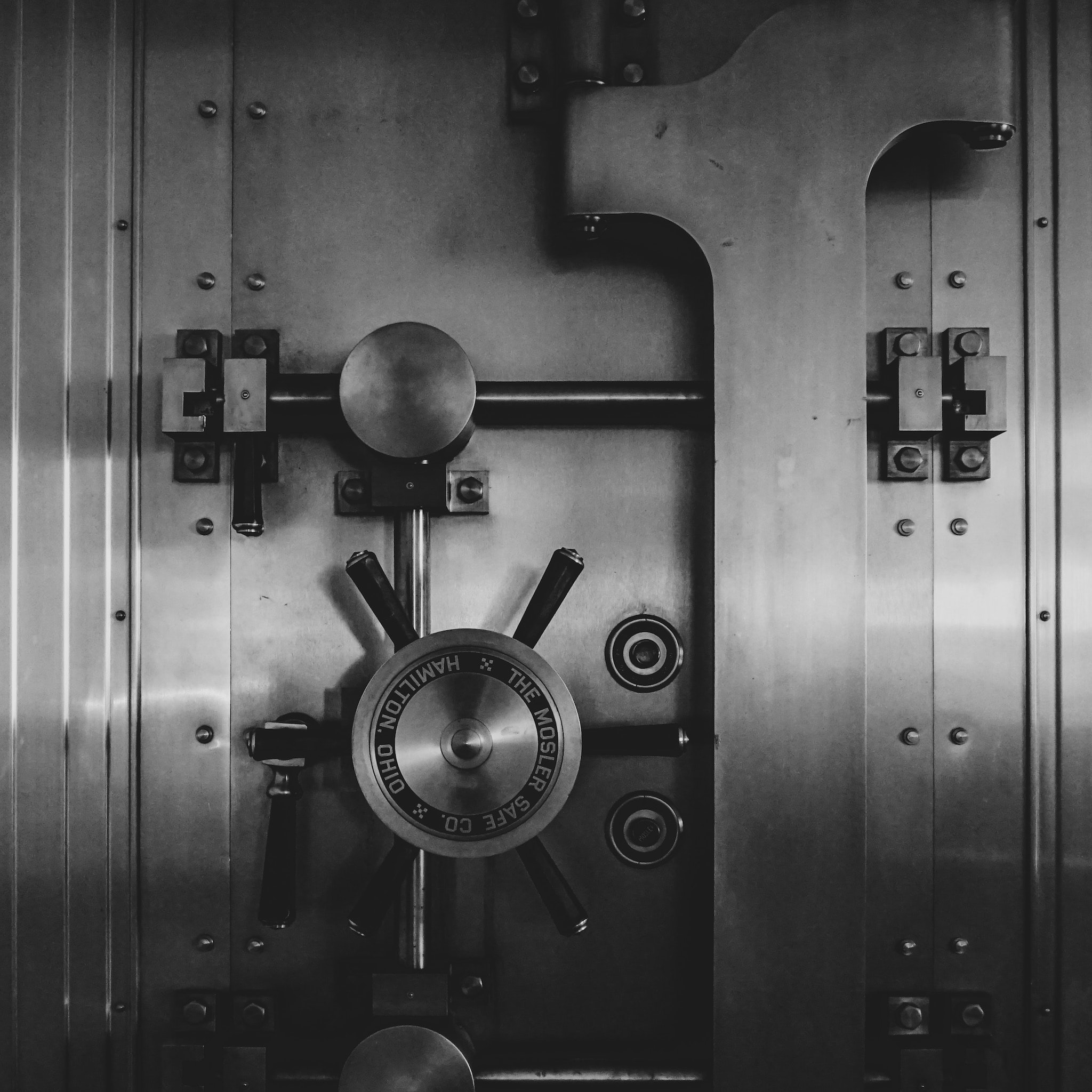December 4, 2024
Is Dumping $230K into the S&P 500 All at Once a Bad Idea?
Introduction
Investing a large sum of money—like $230,000—into the stock market can be a daunting decision, especially if it was originally earmarked for a house. A Reddit user recently shared their dilemma, sparking a robust discussion on lump-sum investing, dollar-cost averaging (DCA), and the broader market environment. Let’s unpack this topic to help you decide what might work best for your financial goals.
Assessing Your Financial Goals
Before diving into the “how” of investing, it’s essential to clarify the “why.”
- Time Horizon: If you might need this money within the next three years (e.g., for a future house purchase), keeping it in a high-yield savings account (HYSA) or certificates of deposit (CDs) might be a safer bet. The stock market, including the S&P 500, is volatile and unsuitable for short-term needs.
- Long-Term Goals: If you don’t foresee needing the money for several years, investing in a diversified portfolio like the S&P 500 could potentially yield better returns. Historically, the market has averaged about 8-10% annual returns, but past performance doesn’t guarantee future results.
Lump Sum vs. Dollar-Cost Averaging
The Reddit community highlighted two primary strategies for entering the market:
1. Lump-Sum Investing
This involves putting all the money into the market at once. Research suggests that lump-sum investing often outperforms dollar-cost averaging because markets tend to rise over time. By investing everything upfront, you allow your money to grow longer.
- Pros: Maximizes potential returns if the market continues to rise.
- Cons: Risk of investing right before a market downturn, which could lead to short-term losses.
2. Dollar-Cost Averaging (DCA)
DCA involves spreading your investment over time, buying shares at regular intervals regardless of price.
- Pros: Reduces the emotional impact of market volatility. If the market drops, you can buy at lower prices.
- Cons: Potentially lower returns compared to lump-sum investing during a bull market.
Which is better? It depends on your risk tolerance and emotional comfort. If a sudden drop in your portfolio’s value would cause you stress, DCA might be a better choice.
Market Timing: A Risky Gamble
Many commenters expressed concern about market timing, or trying to predict when prices will rise or fall. The consensus? It’s nearly impossible to do consistently. Instead, focusing on your long-term investment plan is key.
Emotional Decision-Making
One of the most upvoted comments wisely noted that emotions play a significant role in financial decisions. Losing out on a dream home or seeing the market spike can lead to impulsive choices. Taking time to cool off and reassess your goals can lead to better outcomes.
What About Market Risks?
Some Redditors raised concerns about the current market environment, citing overvaluation and potential corrections. While these risks are valid, the S&P 500 remains a broadly diversified index, and many experts view it as a solid long-term investment.
Practical Takeaways
If you’re grappling with a similar decision, here’s a potential game plan:
- Set Aside a Safety Net: Keep enough cash in your HYSA to cover short-term needs or opportunities, like a potential house purchase.
- Determine Your Investment Strategy: Decide between lump-sum investing or DCA based on your risk tolerance.
- Stay Diversified: If you invest, consider spreading your money across multiple asset classes to reduce risk.
- Ignore the Noise: Resist the urge to time the market or react to every headline. Stick to your plan.
Final Thoughts
The decision to invest $230K isn’t about finding the perfect moment—it’s about aligning your money with your goals and risk tolerance. Whether you go all-in or ease in with DCA, remember that investing is a long-term game. As one Redditor put it, “If the market tanks, who cares? Keep investing, and it will all come back and more.”
What would you do in this situation? Let us know!
Why Use Investing Apps in the UK
Investing is now simpler than ever thanks to these applications, which get rid of the need for pricy brokers or complicated procedures. Investing apps like Trading 212, Freetrade, and Revolut make it possible for young and beginner investors to take control of their investments with their user friendly interfaces, built in educational tools and minimal or no costs.
As the need for low cost investing options and financial independence continues to grow, the UK is expected to utilise mobile investing tools even more in 2025. More people in the UK are using apps to manage their money as a result of its adaptability, simplicity of use, and the growing trend towards digital financial solutions and increased awareness of personal financial planning, which makes investing apps an effective tool for beginner investors.
Benefits of Using Investing Apps for Beginners
- Accessibility - By providing a straightforward, mobile friendly platform that is available at anytime and from any location, investing apps have completely changed how individuals invest. You no longer have to spend hours learning complicated systems or setting up sessions with financial experts. Beginners can begin investing directly from their smartphones with a few taps. Anyone, regardless of their schedule or location, can participate in investing without any obstacles thanks to this immediate access.
- Low cost - The affordability of investment apps is one of their most notable benefits. The high commissions and administration costs associated with traditional broking services make it challenging for those starting out to invest small amounts of money. On the other hand, a lot of investment apps provide cheap fees or commission free trading, which makes them perfect for beginners. This enables beginners to invest without fear of losing a significant amount of their profits to fees, allowing them to give more money to the market.
- Adaptability - Traditional investment strategies are not as flexible as investing apps. Beginners can more easily dabble without making a significant upfront payment because many investment platforms enable users to invest in a variety of assets, stocks and shares, exchange traded funds (ETFs), and specialised investment options, allowing beginners in the UK to diversify their investment portfolios right away. Furthermore, everyday investors may manage their investments on their own terms and are not restricted to a 9 to 5 schedule thanks to the option to trade at any time and from any location.
Manage your wealth like never before

Key Features to Look for in an Investment App for Beginners in the UK
- East to use interface
The design of the app should be simple and intuitive. You will find it easier to comprehend and utilise the platform without feeling overwhelmed if it has a straightforward and uncomplicated layout. - Educational Resources
The best investment apps include educational materials such as FAQs, videos, tutorials, and articles. Beginner investors can use as a guide to understand important investment strategies and make wise choices. - Platform fees
A lot of investment apps charge management fees and trading fees. To protect your investment gains, it's crucial for beginners to select an investment app with little to no costs. The best investment apps waive management fees or provide zero commission trading. - Low minimum investment
For beginners who might not have a large initial investment, apps that let you start investing with small amounts of money are excellent. Also look for apps that sell fractional shares, so you can invest in pricey stocks without having to purchase the entire share. - Portfolio diversification tools
Seek for investment apps that provide a variety of investment options, including mutual funds, index funds, and exchange traded funds (ETFs). Even with little money you can create a diversified portfolio by making a fractional investment in individual stocks. - Robo-Advisor Features
Some investment apps include robo-advisors which automatically manage your investment portfolio according to your goals and risk tolerance. For those whose may not feel comfortable choosing their own investments, this is a fantastic benefit. - Security features
It is important to ensure that the app has strong security features like encryption, two-factor authentication, and safe account recovery methods to protect personal data and information. - Current market data
The best investment apps have real time market data, charts and stock market performance metrics which are essential for beginners who wish to remain informed and make wise judgements. - Type of investment accounts
There are many types of investment accounts available, such as investment accounts for minors, individual retirement accounts and individual taxable accounts. You should choose an investment app that provides you with a range of account options that can help meet your financial objectives.
Further reading

Investing
May 30, 2025
What Happens When You Short a Stock and How Can You Do It?
This is the summary of the blog post on shorting a stock

Company Updates
May 16, 2022
Why We're Crowdfunding
Read more about our decision to launch a Crowdfund with Seedrs

Investing
May 2, 2023
What is the Best Crypto Portfolio Tracker
Discover how to use Strabo and other tools to track your crypto portfolio across platforms

Investing
November 19, 2024
Why is there a Crypto Surge and What Does it Mean for my Portfolio
With crypto prices rising across the board, let's take a look at what this means for your portfolio

Investing
February 14, 2022
Why a Bear Market Might be a Good Thing for Crypto Investors
A downtrend in crypto markets could prove to be a good thing in the long term. Here's why

Investing
July 14, 2022
What is Responsible Investing and Why It Matters: ESG Funds
A brief introduction to impact investing for consumers

Saving
December 3, 2022
Why Energy Prices are Rising: A Brief Explanation
A brief look into the increase in energy prices in the UK

Saving
June 22, 2022
Why is Petrol so Expensive in the UK in 2022?
It is now more expensive than ever to fill up your car. But why?

Company Updates
March 5, 2024
What we learnt from launching on Product Hunt for the first time
Launching Strabo on Product Hunt

Investing
June 14, 2023
Where Should You be Buying Stocks: The UK's Top Brokerage Accounts
Find out which is the best brokerage account to open in the UK this year

Investing
September 9, 2024
What Metrics Should I be Tracking in my Investment Portfolio
Find out what you should be looking for when tracking your portfolio

Saving
August 28, 2024
What is the 100k Tax Trap and How Can You Avoid It
A dramatic effective tax increase awaits. Find out what to do when it hits

Saving
December 3, 2022
What is Inflation, and Why Does it Matter?
Discover how rising prices come about and what they mean for you

Saving
June 29, 2024
Prepare Yourself for Unexpected Expenses: How to Plan for the Future
Get ahead of any large upcoming costs before they affect you

Investing
August 17, 2022
Modern Portfolio Theory: Real-World Applications
Discover how MPT can be applied to your investments

Saving
February 21, 2025
Top 10 Best Apps for Saving Money UK: Boost Your Savings Effortlessly
Find out which ones you should download today

Saving
January 31, 2022
The Top 5 Bank Accounts for Digital Nomads
Which should you use when moving abroad

Guides
March 2, 2024
The Top 5 Financial Planning Tools Used by Advisors
Which software can help you improve your clients' experience

Guides
May 11, 2023
The Property Investment Guide
Learn about getting started with property investing with Strabo

Investing
June 21, 2024
The Top 10 Financial Trends to Watch in 2024
Here's what you should be paying attention to for the upcoming year

Financial Independence
December 8, 2022
The Pros and Cons of an Increased Workplace Pension Contribution
Should you increase your pension contributions or invest elsewhere?

Investing
September 26, 2024
The Future of Finance: 10 Key Fintech Trends Shaping 2024 and 2025
Here's what to pay attention to in fintech in the coming years

Guides
March 14, 2023
The Financial Planning Guide
Your detailed guide to personal financial planning

Saving
April 7, 2023
The ISA: Part 1 - What is it, and How Should I Be Using It?
What are the different types of ISA and how can you use them as an effective tool?

Investing
December 15, 2022
Fear and Greed Index: What It Is and Its Market Impact
Measuring how much fear and greed is affecting market prices

Saving
December 3, 2022
Best Savings Account for International Students Abroad
A resource to compare savings accounts for UK students abroad

Saving
June 14, 2024
The Cost of Marriage: Effects of a Wedding on Your Financial Life
Calculate how much your wedding might cost you

Investing
October 28, 2022
Portfolio Risk Analysis: Measuring Investment Vulnerability
How to measure and react to the risk in your investment portfolio

Guides
April 3, 2023
The Capital Gains Tax Guide for the UK
A simple guide to capital gains tax in the United Kingdom

Saving
May 2, 2022
The Cheapest Digital Nomad Locations: Where to Go on a Budget
Tips for moving abroad from the Strabo team

Investing
February 22, 2024
The Best Investment Options in UAE
Tips for investing in the UAE from the Strabo team

Saving
April 4, 2022
Create Budgets: Best Finance Apps in Australia for You
Tips for saving money if you're in Australia

Investing
August 2, 2024
The Best Digital Asset Management Software for the United Kingdom
Today we're breaking down the best software to manage your assets

Saving
December 16, 2022
The Best Finance Apps for Couples: Manage Your Money Together
Try out Strabo or one of the other apps designed for couples to manage their finances

Investing
March 7, 2022
The Best Investing App in Europe: Find Out Which One is Right for You
Look no further - a breakdown of the best investing apps for Europeans

Investing
April 18, 2022
The Best Bank Account for UK Landlords
A brief exploration of what makes a good bank account if you have rental property

Investing
February 14, 2025
What is Mean Reversion, and How Can Investors Use It?
Taking a deeper look at one of the most important statistical concepts in investing

Saving
May 9, 2022
Best Bank Account for Expats & Digital Nomads: Bank Stack
How best to manage your money strategically across countries

Company Updates
January 14, 2024
Strabo is Live! 5 Lessons learned from a Public Software Launch
Key learnings from a public SaaS product launch

Saving
December 3, 2022
The 2022 UK Budget Announcement: Everything You Need to Know
Key headlines from this mornings red suitcase

Investing
May 2, 2023
Startup Investing Part 1: When and How
Is it a good idea to put your investment capital into early stage companies?

Investing
April 4, 2023
Startup Investing Part 2: Venture Capital, EIS and VCT
A follow up on investing in early stage companies

Saving
June 27, 2024
Preparing Your Savings for a Baby: How Much Does it Cost?
Helping you make one of the most important personal decisions in your life

Financial Independence
June 30, 2022
Should I Put All My Pensions Together?
Helping you decide if separating or combining your pensions is the right choice for you

Investing
August 5, 2022
Should You Invest in Gold and Silver?
They're huge asset classes, but are they worth your money?

Investing
July 11, 2024
Smart Strategies for Investing While Living Abroad: An Extensive Guide
An expat's help guide for investing abroad

Investing
November 30, 2022
Rental Property: The Best Buy to Let Mortgages for First Time Buyers
How to finance your first rental property

Company Updates
June 6, 2022
Risk Appetite vs Risk Tolerance: How They Should Impact Your Portfolio
Understanding risk: one of the most important aspects of personal investing

Saving
July 4, 2022
Paying Down High-Interest Debt: Avalanche vs. Snowball
Are you in debt? If so, this repayment strategy blog is vital for you

Guides
October 1, 2024
Maximize Your ISA Allowance: Top Tips for UK Investors 2024/25
Make the most of your £20k allowance this year

Guides
December 3, 2024
Master Wealth in 2024: Smarter Strategies for Your Finances
A categorical summary of top strategies for the year

Saving
June 23, 2023
Managing Debt: Smart Strategies for Borrowing and Repayment
Get a hold over your debt and how best to complete repayment

Investing
December 4, 2024
Is Dumping $230K into the S&P 500 All at Once a Bad Idea?
Learning how to invest a lump sum

Financial Independence
July 29, 2024
Making the Most of Your Pension Pot: Tips for New Savers
Get a grip on your pension with Team Strabo

Guides
July 10, 2024
Making the Most of a Gift or Bonus: A Practical Guide
Learn the responsible way to manage a lump sum

Saving
March 14, 2022
Is there a Multi Currency Personal Finance App?
Discover cross-border investing with a multi currency finance app

Financial Independence
December 3, 2022
Is Passive Income Possible Through Dividend Investing
Capture company earnings with strategic dividend investing

Investing
August 22, 2024
Investment Strategies in the UK: What You Need to Know
Explore practical strategies to become the best investor you can

Investing
April 24, 2023
Investing in US Stocks from the UK: A Finance Guide
Capturing upside from the US stock market

Investing
December 3, 2022
Investing Strategies for Market Turmoil
Navigate the inevitable market disruption with a proper strategy

Saving
June 1, 2022
I Have No Savings at 30: What do I do?
Don't panic - let's look at your financial situation

Investing
June 10, 2022
Investing During a Bear Market: Tips to Protect Your Portfolio
Navigate market turmoil with a robust investing strategy

Investing
June 27, 2022
Investing in Hated Sectors: Do Sin Stocks Outperform Others?
Sin stocks have the potential to be volatile and risky. But do they outperform the market?

Investing
October 28, 2023
How to Use Chat GPT as Your Personal Finance Assistant
Leverage AI to improve your investing strategy

Financial Independence
January 26, 2024
How to Use a Side Hustle to Boost Your Income
Discover how a side hustle can supplement your income and net worth

Saving
October 18, 2024
How to Prepare for the 2024 Budget
Discover the highlights from the latest red suitcase

Investing
December 3, 2022
Choosing the Best Stocks for Long-Term Investment: A Guide
How to build a portfolio that endures for the long term

Investing
September 18, 2024
How to Buy Shares Online in the UK: A Step-by-Step Guide
Get started investing in shares today

Saving
June 19, 2024
How Much to Spend on Holidays Per Year
Budget for this year's holiday now

Saving
August 22, 2022
How to Budget and Invest on an Irregular Income
Smooth your freelancer income

Saving
May 6, 2025
How to budget for a Holiday
Plan your expenses for this year's holiday today

Financial Independence
February 18, 2025
How Much Should I Be Saving for Retirement? A Practical Guide
Planning your income and expenses for the later years in life

Financial Independence
February 8, 2023
Fire Movement UK: The Financial Independence, Retire Early Movement
Discover FIRE with Strabo

Saving
January 20, 2023
How Many Bank Accounts Should You Have in the UK?
Set up your bank stack with the help of Team Strabo

Company Updates
June 7, 2022
How Crowdfunding Works for Startups
Discover fundraising tips from Team Strabo

Saving
December 3, 2022
How Best to Navigate the UK Tax Code: Your Guide for Consumers
Paying tax in the UK can be confusing. Here's our short guide

Saving
January 21, 2024
Clever Ways to Save Money When You Get A Pay Rise
Make the most of that extra cash each month

Investing
September 7, 2022
Futures and Options: What are They, and How to Trade Them
Learn about some of the more esoteric ways to invest with Strabo

Guides
July 16, 2024
Useful Expat Tax Advice: Maximise Savings & Avoid Penalties
Make the most of overseas tax regimes today

Saving
November 1, 2024
Do You Need an AI Financial Assistant?
Using modern AI to augment your personal finance management

Investing
August 11, 2022
Electric Vehicle Stocks are on the Rise: Should You Invest?
Discover investing potential in the financial markets' latest trend

Financial Independence
November 29, 2022
Do You Need a SIPP & What are the Withdrawal Rules?
Using a Self Invested Personal Pension to accelerate retirement savings

Financial Independence
June 20, 2022
Do You Need a Global Wealth Manager
A brief guide to using a cross-border financial adviser

Investing
September 6, 2024
Cryptocurrency vs. Stocks: what’s the difference?
Learning the fundamental difference between two of the most important asset classes

Financial Independence
July 24, 2024
Detailed Breakdown of Pension Schemes in the UK
Learn about the different types of UK retirement accounts

Investing
August 16, 2024
Choosing the Top Real Estate Management Software in the UK
Manage your rental properties more effectively with specialist software

Investing
August 13, 2024
Cheapest Way to Buy Shares in the UK: A Practical Guide
Learn how to get started investing in stocks in the United Kingdom

Saving
December 3, 2022
Chancellor's 2022 UK Budget Announcement: The Update
Discover updates from this year's red suitcase

Saving
October 13, 2024
Cash Flow Planning: How to Draw From Your Portfolio
Withdrawing money from your portfolio in the most effective way

Investing
March 1, 2023
Calculate Your Investment Portfolio Diversification With Strabo
Use our handy tool to figure out how diverse your portfolio is

Guides
August 8, 2024
Budget of Paris Olympics 2024: Costs, Funding, and Economic Impact
Learn about some of the key financials behind this year's biggest sporting event

Investing
February 27, 2025
Best Investing Apps for Beginners UK: Top Choices to Start Your Investment Journey in 2025
Learn how best to get started with your first investment with Team Strabo

Guides
November 7, 2024
Balancing Holiday Expenses with Long-Term Goals in Your 30s
How best to split your spending between work and play

Guides
October 11, 2024
11 Essential Financial Calculators to Simplify Your Finances
Start using Team Strabo's favourite tools today

Investing
August 2, 2022
Portfolio Construction Begins with Asset Allocation: A Guide
Learn how to allocate your funds effectively between assets

Investing
November 12, 2024
Achieve Your Financial Goals in Your 30s with Strabo AI
Leverage our AI financial assistant to get the most out of your portfolio

Investing
July 8, 2022
10 Tips for Contracts and Tenants for Your First Rental
Avoiding the most common pitfalls with your first investment property

Financial Indep
September 12, 2024
10 Effective Tips to Get Your Finances on Track
Get the basics right with Team Strabo


